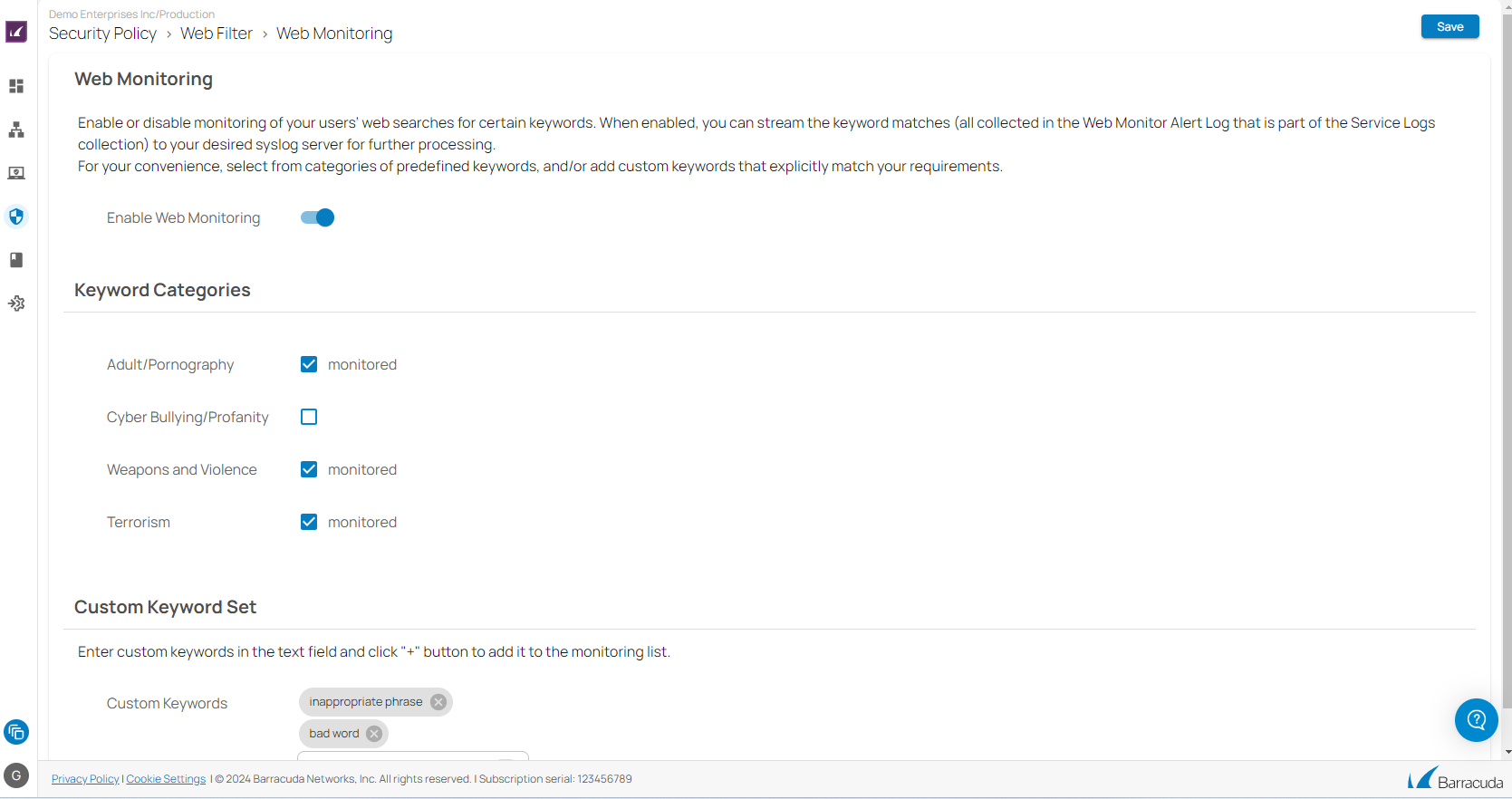Barracuda SecureEdge offers a security solution, known as the Secure Web Gateway, that protects an organization from online security threats by enforcing company policies. You can configure the Secure Web Gateway to monitor and stop malicious traffic from entering the organization's internal network, and to block or warn/alert users from accessing malicious or suspicious web resources. On the Barracuda SecureEdge Manager, you can configure the following modern SWG feature list:
Web Filter Policies
To protect against potential threats and to enforce corporate policies, create a web filter policy or an explicit rule. A filter rule either blocks or allows a domain, category, or custom category from any source, whereas an explicit rule blocks or allows URLs from specified sources. In addition, for the web filter rule, you can now either alert or warn users against suspicious traffic.
For more information on how to create web filter policies, see Web Filter Policies and How to Create an Explicit Web Filter Policy.
Custom Categories
You can now create your own custom categories to filter traffic from specific domains, specific categories, or a combination of domains and categories.
For more information, see How to Create Custom Categories.
Web Monitoring
To detect suspicious keywords in search engines (such as Google, Yahoo, Bing, DuckDuckGo, and YouTube), you can define web monitoring policies.
For more information, see How to Configure Web Monitoring in Barracuda SecureEdge.
Safe Search Enforcement
You can enforce Safe Search per workspace for internet search engines.
For more information, see How to Enable Safe Search in Barracuda SecureEdge.
Silent Ad Blocking
You can create a web policy per workspace that silently blocks online advertisements and banners.
For more information, see How to Enable Silent Ad Blocking.
Custom Response Page
You can create your own custom notification or response message when a specific URL is blocked due to a defined URL filter policy on your sites or Edge Services.
For more information, see How to Create Custom Response Pages.
